Know the Reasons for Testing Dirty and How to Stay Out of Trouble
You cannot always prepare for a drug test. Employers might issue random drug tests or request one after an accident at work. Even people tested regularly, like those on probation or parole, do not know exactly when they will be tested.
If this test comes after using alcohol or illicit substances, there can be some uncertainty about the next steps.
Let’s get to the point, what is the best defense for positive drug test results? How much trouble will you be in?
While there are a handful of legitimate reasons for a positive drug test, such as certain medications (either prescribed or over-the-counter), a positive test often confirms drug use.
Honesty is the best policy if you get caught. Owning up to your mistakes and being willing to seek treatment can help you avoid situations like job loss or going to jail.
At South Shores Recovery, we can help you take important steps toward a better, sober lifestyle. Our programs lay a strong foundation for recovery that you can build on, ensuring you have access to the skills and support necessary to overcome alcohol and drug addiction for good.
What is the Best Explanation for Positive Drug Tests?
The most common reason for a positive drug test result is that you used drugs or alcohol. False positives are possible, but they are unlikely.
Urine samples are also more likely to produce a false positive result than blood or hair tests.
Honesty is the Best Policy
Unless you truly believe you have false positive results, being honest about substance use yields the best results. While each circumstance is different, being honest and seeking substance abuse treatment can lead to a second chance.
It is very unlikely that you’ll be able to overcome lying about a test, especially when the positive test results are sent out for secondary testing.
Many drugs/alcohol stay in your system for several hours, days, or even weeks, so they will be detected in another screening. A second drug test is also typically more sensitive and thorough than the first.
Other Defenses for a Positive Drug Test
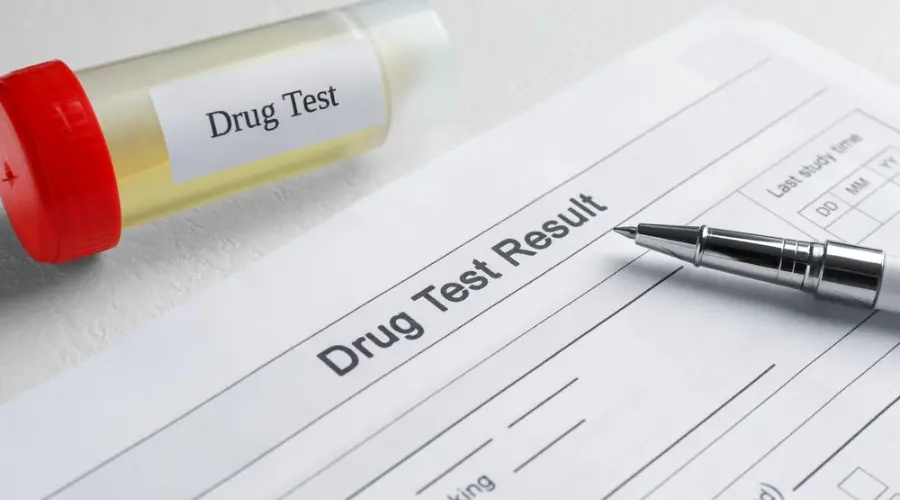
Some scenarios can result in a positive test result during a drug screening even if you haven’t used drugs or alcohol. Certain prescribed or over-the-counter medications might contain byproducts metabolized by the body similar to the way drugs are.
Certain foods can also contain these byproducts.
While drug tests are not always accurate, most are. More thorough testing is done on positive samples, determining the specific compounds causing the false positive. It’s important to be honest about drug and alcohol use because pretending drug testing is inaccurate is rarely effective.
False Positive Marijuana Drug Testing
Testing positive on a cannabis drug test can be caused by consuming cannabidiol (CBD) products, vitamin B supplements derived from hemp, and CBD oil. Even though CBD products are regulated, they are legally allowed to contain trace amounts of THC.
Pain medications, proton pump inhibitors, and widely prescribed HIV medications also cause a positive result.
Amphetamine False Positives
Numerous medications can produce positive results for amphetamines, including beta blockers, ADHD medication, certain antidepressants, medicine for nausea and vomiting, diet pills, and over-the-counter diet pills.
False Positive Stimulant Drug Tests
There are not many other substances that cause a positive result on stimulant drug tests, aside from certain diet pills and coca tea. Coca tea is made from the leaves of the Coca plant, most commonly served in its native country of Peru.
False Positive Opioid Drug Test
Without illicit drug use, a positive result on opioid drug testing may be caused by anti-psychotic medications like Seroquel, poppy seeds, over-the-counter antihistamines, and quinoline antibiotics.
Benzodiazepine False Positives
Benzodiazepines like Xanax are known for their relaxing effects on the body. They may be prescribed to relieve seizures or reduce anxiety.
Certain over-the-counter pain meds including ibuprofen and naproxen can cause false positives during benzo drug testing.
False Positive Barbituate Drug Testing
Barbiturates also have relaxing effects. False positives are most likely to happen after taking ibuprofen or SSRIs, which are used to treat depression, social anxiety, panic attacks, OCD, and PTSD.
Use of Prescription Medications
Prescription medications are exempt from drug screenings, provided you have a valid prescription. It’s important to disclose any prescription drugs you have taken recently to the test administrator.
Prescription drugs such as Dilaudid and Adderall (and many others) should justifiably be excluded from the results of the test. is you are given them for medical necessity. However, you may need to provide documentation or proof of a prescription.
Can Poppy Seeds Cause a False Positive?
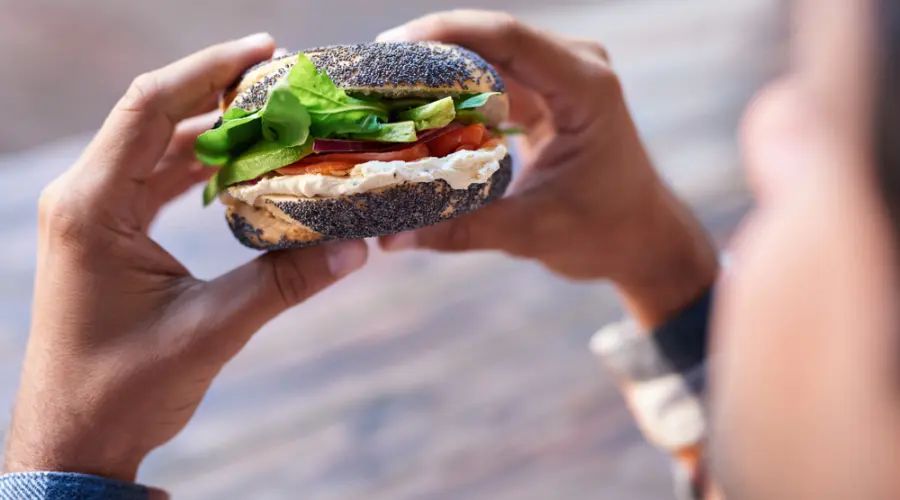
Consuming poppy seeds can make you test positive for opioids, especially morphine and codeine. Poppy seeds come from the opium plant, the same plant that is harvested to make opium, heroin, and other opioids.
This does not mean you will get high from consuming poppy seeds. Some tests are just so sensitive that they pick up trace amounts, resulting in false positives.
It is not uncommon for test administrators to ask if you have consumed any poppy seeds or other foods that might show up as positive for drug use on a test. When these are sent to the lab for further testing, it is often determined that the minute amount was derived from food intake.
Can Secondhand Smoke Exposure Cause a False Positive?
A urine drug test may detect THC from secondhand smoke, but this isn’t necessarily a false positive result. Some tests are sensitive enough to detect even trace amounts of THC. This can happen when you are around people who are smoking in an enclosed space, often resulting in a contact high.
The best defense in this case is to be honest about being around others who have smoked. If you were only exposed to minor secondhand smoke, it would be eliminated from the body faster than for heavy smokers.
Even though cannabis can be detected for up to 4 weeks or longer in the case of chronic users, the levels of THC will begin to dissipate after a week of quitting weed consumption.
Factors like body mass, overall health, and hydration levels can also impact how long you’ll test positive after being exposed to secondhand marijuana smoke.
Can Over-the-Counter Medications Cause a False Positive?
Certain over-the-counter medications can trigger false positive results, especially during the first stage of the testing process. Your urine sample will be sent for secondary testing, which will identify the ingredients triggering a positive drug test.
Most of the time, test administrators will ask if you’ve had any over-the-counter drugs that might skew the test results. Be thorough and honest to avoid false positives. Some over-the-counter meds that might cause a false positive include:
- Cold medications, especially nasal and sinus decongestants
- Allergy medications
- Pain medication like ibuprofen
- Diet pills
When you disclose the use of over-the-counter meds, they can be excluded from the test. This reduces the risk of a false positive result.
You should also disclose any vitamins, minerals, or non-FDA-regulated dietary pills. However, these usually produce false positive test results that are negated by a second, more thorough test.
The Drug Testing Process: Initial Testing
Often, the initial tests for drugs and alcohol involve urine testing, urine tests can detect drug and alcohol use for a longer time than saliva tests, but they are not as invasive as blood tests. These initial urine drug tests are also called an immunoassay test.
Immunoassay tests detect common controlled substances. The most common 5-panel drug screens detect marijuana, cocaine, amphetamines, opioids, and PHP. More extensive tests detect drugs like barbituates and benzodiazepines, too.
Confirmatory Test for a Positive Result
In a lab setting, any positive sample is sent away for secondary confirmatory testing. The most common confirmation testing methods include either a high-performance liquid chromatography or gas chromatography-mass spectrometry test.
Gas chromatography-mass spectrometry is considered the “gold standard” and tests the levels of isolated compounds in a sample. High-performance liquid chromatography also measures the quantity of isolated compounds in fluids including urine or blood.
Confirmatory drug screens are more thorough than initial saliva, blood, or urine tests. They provide specific levels of any substances found in the blood, very rarely causing false negatives or positives.
How Common is a False Positive Drug Test?
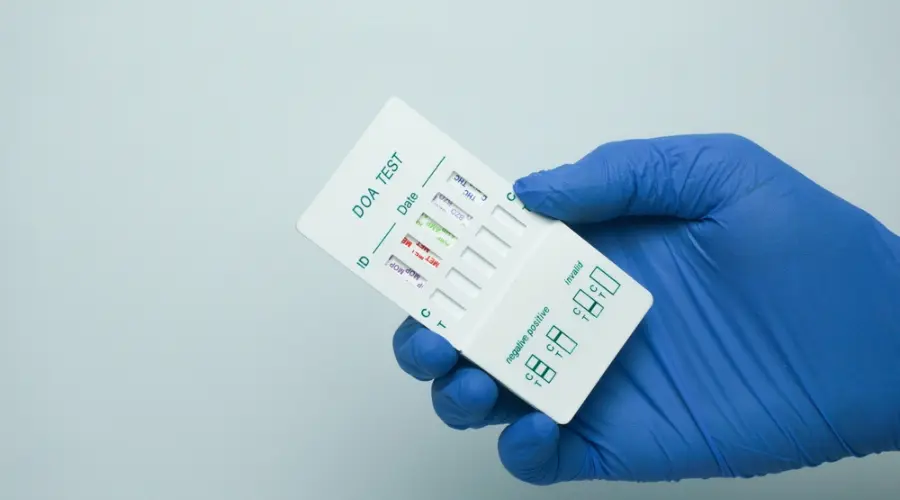
A false positive drug test result is rare. Most of the time, when you test positive, it is because you have used or been exposed to drugs or alcohol. However, there are times when over-the-counter medications, prescriptions, or other things are to blame.
When the initial test results show positive, the sample will be sent to a lab for a confirmatory test. These tests are thorough in testing for illegal substances, common adulterants, and other drugs.
What Should I Do if I Believe My Drug Test Was False Positive?
If you believe your positive drug test result is a false positive, it’s best to wait for the confirmatory results. Confirmatory drug tests are
There are also ways to fight a false positive test result. Start by requesting a secondary drug screening to prove your negative result.
Should I Consult with a Lawyer for False Positive Drug Testing?
The only time that you should reach out for legal representation is if you have not been using drugs or alcohol. If there is any possibility that you have ingested an illicit substance, whether intentional or not, contacting a lawyer would waste your time and money.
In the event that your false positive drug test is legitimately a false positive, a lawyer might argue issues in the chain of custody or in how the urine sample was preserved.
Often, a second test will be administered to either confirm or deny the results of the first drug test.
Should I Detox Before Secondary Drug Testing?
If it were to be found your drug test had a false positive result, then you may be asked to take a second test. You should not detox before this test.
There are many “at-home” detoxes that people try to clean themselves out before drug testing. These dilute your urine sample and may leave behind their own metabolites. This can make you look guilty of tampering with the sample, even if you haven’t intentionally consumed drugs or alcohol.
What is the Best Way to Prepare for a Drug Test?
The best way to be prepared for a drug test is to avoid drinking alcohol, smoking marijuana, or using any illicit drugs in the days or weeks leading up to the test.
Unfortunately, in the case of random drug testing, you won’t have a warning. Abstinence is the only way to avoid a positive drug test result.
What Happens if I Have a Positive Drug Test?

The consequences of a positive drug test depend on why it is being administered. Even if you only use illegal drugs occasionally, on weekends, or to relax, it’s all too easy to fall into habits of use. This is where addiction starts.
Employment Consequences
Some employers will not tolerate any type of substance use. They may administer random testing to all employees. Management can also decide to administer a drug test after an accident at work or if there is reasonable suspicion of drug use.
When your employer has a zero-tolerance policy, a positive drug test result might mean losing your job.
Legal Consequences
Drug-related crimes include those related to possession, manufacturing, and distribution of drugs, as well as possession of tools or paraphernalia for drugs.
Other legal consequences include those for crimes committed while under the influence. For example, public intoxication, driving under the influence, violent acts or crimes, or theft.
Relationship Consequences
It’s not uncommon to have strained interpersonal relationships when you struggle with substance use disorder. You may withdraw from friends and family during addiction, especially if they do not enable your habits. Substance use can also make you say and do things you wouldn’t otherwise, which often damages relationships.
Other Things to Consider
Outside of these things, alcohol and drug abuse affect your health, finances, and overall well-being. You may struggle with things like self-care, nutrition, and proper sleep. Alcohol and drug abuse can also cause money problems as more and more of your finances go toward your habits.
Can I Legally Be Fired for Substance Use Disorder?
Under the Americans with Disabilities Act, you cannot be fired for seeking addiction treatment or having previous problems with drugs and alcohol. However, you can be fired for being impaired by drugs or alcohol at work.
Often, companies have policies in place that promote a healthy work environment. Some companies have a zero-tolerance policy and promote a drug-free environment at work. Others might continue to employ you as long as you seek treatment or attend a rehabilitation program.
Reasons you may be fired include failing to adhere to company policies, meeting certain codes of conduct, or fulfilling work responsibilities. While being fired for substance use is not ethical or legal, factors like your sobriety on the job and willingness to seek treatment before being caught may change the outcome.
How Do I Know if Substance Use is a Problem?
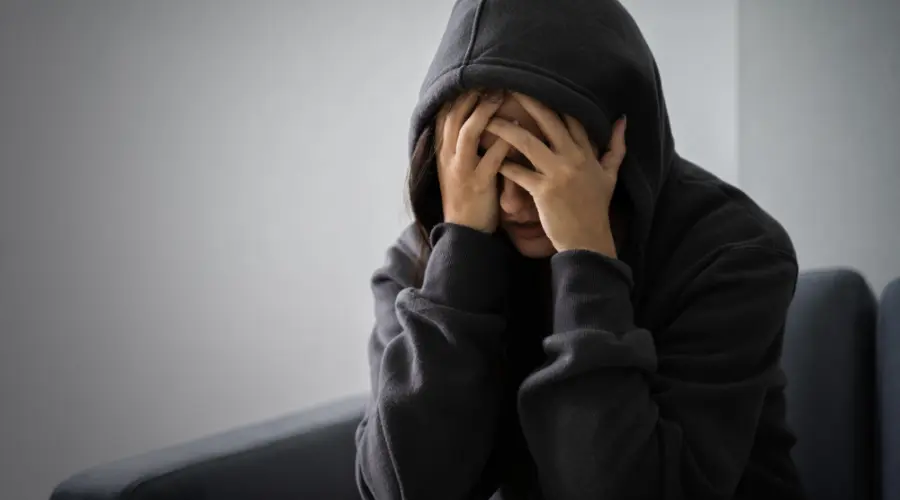
It’s easy to fall into habits of substance use, even when there are consequences for using drugs and alcohol. When you feel you cannot quit using, even with the risk of severe consequences at work, home, for your health, and legally, it can indicate dependence on drugs or alcohol.
Other signs you may be struggling with substance abuse include:
- Feeling uncomfortable or sick when you cannot use your substance of choice
- Experiencing strong drug cravings
- Spending time using and recovering rather than taking care of responsibilities
- Strained relationships from drug or alcohol misuse
- Financial, legal, or other problems
- Wanting to quit but being unable to
- Withdrawing from social or recreational activities to use drugs or alcohol
- Needing to use higher doses to get the same effects
- Continuing to use substances even after facing consequences
If you are unsure of the impact that drugs and alcohol have on your life, consider a drug assessment. At South Shores, we offer drug screens as part of the intake process.
We believe that understanding drug and alcohol use provides valuable insight into the type of treatment best suited to your situation. It can also help identify the severity of addiction or whether you are only at risk of developing substance use disorder.
Come Back from a Positive Drug Test at South Shores
It does not matter how long you have been struggling with substance use disorder – there is hope. At South Shores, our customized treatment programs, evidence-based therapies and techniques, and innovative treatment methods set us apart from competitors.
If you are seeking treatment after drug-related offenses or drug screening from an employer, don’t hesitate to reach out. In addition to guiding you through the detox process, we’ll help you lay the foundation for lasting sobriety.
This includes understanding the root cause of your substance abuse, learning coping skills to manage drug cravings, and establishing lifestyle habits that promote a sober lifestyle. We also offer unique activities like meditation, yoga on the beach, and surf therapy.
Reach out to learn more today! One of our knowledgeable staff members is waiting by the phone to take your call, answer any questions you may have, or set up an intake at our accredited facility.
References
- https://www.usccr.gov/files/pubs/ada/ch4.htm
- https://my.clevelandclinic.org/health/diseases/16652-drug-addiction-substance-use-disorder-sud
- https://bjs.ojp.gov/content/pub/pdf/DRRC.PDF
- https://ufhealth.org/news/2023/can-eating-poppy-seeds-affect-drug-test-results-addiction-and-pain-medicine-specialist

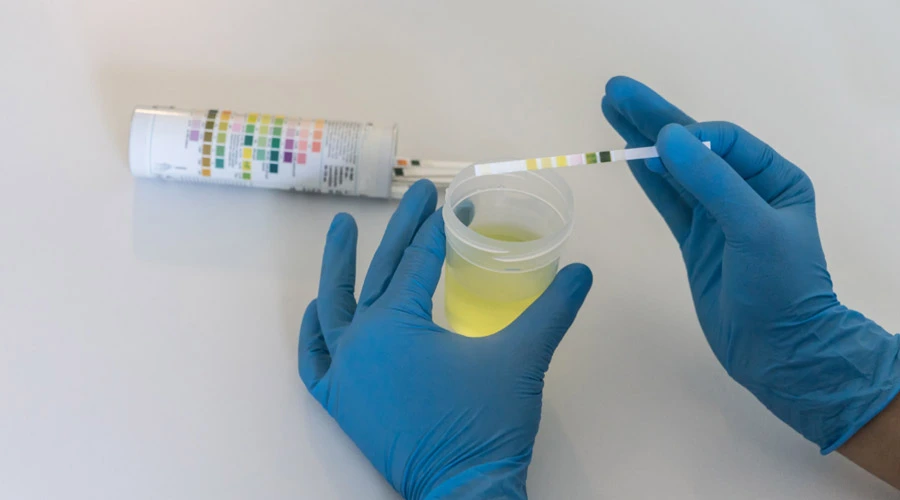
Recent Comments